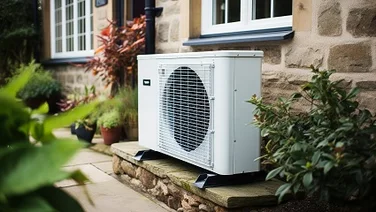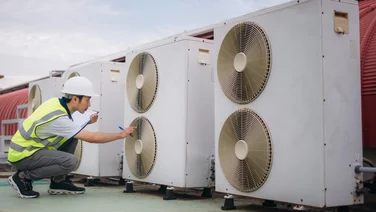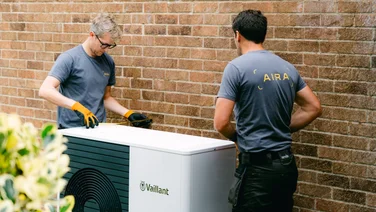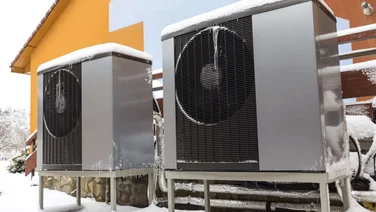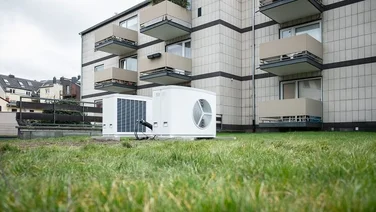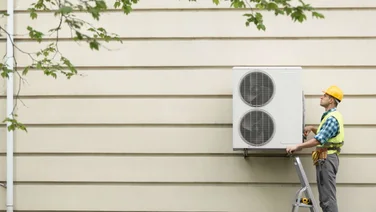- Heat pumps are a low-carbon technology that can significantly reduce household carbon emissions and energy consumption.
- Governments, including Ireland and the UK, offer grants and incentives to encourage heat pump adoption, such as Ireland’s flagship heat pump grant.
- Ireland has also introduced measures such as VAT reductions and significant funding as part of a broader strategy to achieve net-zero emissions.
Heat pumps are an excellent low-carbon technology that can cut a household’s carbon emissions. Countries worldwide, including the United Kingdom and Ireland, provide grants that encourage people to install heat pumps, such as the UK’s Boiler Upgrade Scheme.
If you live in Ireland, there is government help to install a heat pump in the shape of grants and, in this guide, we’ll walk you through how they work. Beyond grants, the Irish government has also taken other measures to help make heat pumps more appealing to the public.
For example, in October, the Irish government cut VAT on heat pumps from 13.5% to 9% to kickstart installations. Since the Republic of Ireland is part of the European Union, this is the lowest rate of VAT they are allowed to cut to.
You can still get a heat pump if you don’t have a house. Read our guide to heat pumps for flats.
These measures are all part of Ireland’s larger £1.18 billion investment to help the nation reach net zero.
What government grants are there for heat pumps in Ireland?
There are plenty of options for people who wish to buy and install heat pumps in Ireland. One example is the nation’s flagship heat pump system grant.
This grant is designed to cover a range of heat pump systems and assessments but is only eligible for first-time installations for any home occupied before 2021. The grant cannot be used to replace existing systems.
The Sustainable Energy Authority of Ireland (SEAI) implements the grant and all of Ireland’s sustainability strategies.
‘What size heat pump do I need?‘ is one of the most common questions people ask when they begin their clean energy journey. Find out which one you need by reading our dedicated guide.
The SEAI is Ireland’s national body responsible for promoting and implementing energy efficiency, renewable energy and sustainable practices in Ireland. Its mission is to help individuals, businesses,and communities reduce energy consumption, transition to cleaner energy sources and achieve national climate action targets.
The SEAI grants up to €6,500 for heat pumps, which goes toward parts, fitting and related upgrades to heating systems.
| Type of heat pump | Description of heat pump | Available funding | ||||
|---|---|---|---|---|---|---|
| Air-to-water heat pump system | Extracts heat from external air using an outdoor unit, the most common heat pump system. | Apartment (Any): €4,500 Semi-Detached, End of Terrace, Detached, Mid Terrace: €6,500 | ||||
| Ground-source-to-water heat pump system | Utilizes the earth as a renewable heat source | Apartment (Any): €4,500 Semi-Detached, End of Terrace, Detached, Mid Terrace: €6,500 | ||||
| Exhaust-air-to-water heat pump system | Combines mechanical extract ventilation with heat recovery from the property, similar to the air-to-water system. | Apartment (Any): €4,500 Semi-Detached, End of Terrace, Detached, Mid Terrace: €6,500 | ||||
| Water-to-water heat pump system | This system uses open water sources like lakes, rivers, or streams to generate heat. | Apartment (Any): €4,500 Semi-Detached, End of Terrace, Detached, Mid Terrace: €6,500 | ||||
| Air-to-air heat pump system | Distributes heat through air units; does not provide hot water. | All Property Types: €3,500 | ||||
| Technical assessment | Required for homes built before 2007 and optional for those constructed from 2007 onwards must be completed before applying for a heat pump grant. | €200 |
*Details courtesy of SEAI.
What are the eligibility requirements for heat pump grants in Ireland?
According to the SEAI, Ireland’s eligibility for heat pump grants primarily revolves around your home meeting specific requirements. This, the SEAI explains, ensures that applications benefit most from installing heat pumps due to sufficient insulation and good building airtightness to fully benefit from the technology.
To this end, any home built before 2007 will require a technical assessment to be carried out. For any homes built after 2007, a self-declaration form or technical assessment must be completed and uploaded at the application stage.
The SEAI explains that post-2007 homes should meet minimum building heat loss requirements (i.e., well insulated), thereby forgoing the need for a technical assessment. You can still choose to get one done (which must be completed by an independent SEAI registered technical advisor), but a Self-Declaration is enough.
It is also important to note that all homeowners whose homes were built and occupied before 2021, including landlords, can apply for the grant.
The grant can also cover the technical assessment costs but this is only payable with the heat pump installation grant.
The SEAI also recommends that applicants familiarise themselves with its Homeowner Application Guide when applying for and claiming cash grants, so they know the terms and conditions attached.
What are the benefits of installing a heat pump?
Heat pumps offer many benefits to anyone who decides to take the plunge and install one. These include:
- Creating a more energy-efficient home and reducing energy consumption. Replacing conventional heating systems with heat pumps also reduces harmful greenhouse gas emissions.
- Maintaining a constant temperature, improving home comfort and health, particularly in well-insulated dwellings.
- Transitioning away from fossil fuels by using clean energy.
- Lowering energy bills by reducing energy consumption. However, for best results, proper insulation and double- or triple-glazed windows are essential for optimal heat pump performance and lower electricity bills.
Summary
- SEAI grants provide up to €6,500 for various heat pump systems, covering both installation and system upgrades.
- Eligibility for heat pump grants depends on meeting insulation standards and completing necessary assessments for older homes.
- Heat pumps reduce greenhouse gas emissions and improve energy efficiency and home comfort.
- Proper insulation and glazing are essential for maximising heat pump efficiency and minimising electricity bills.
- Adopting heat pump systems is a key step in transitioning from fossil fuels and lowering energy bills in the long term.


